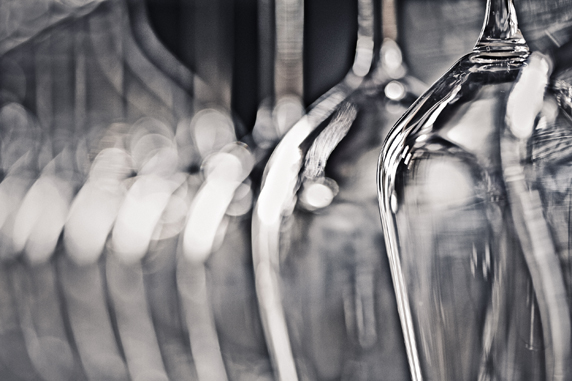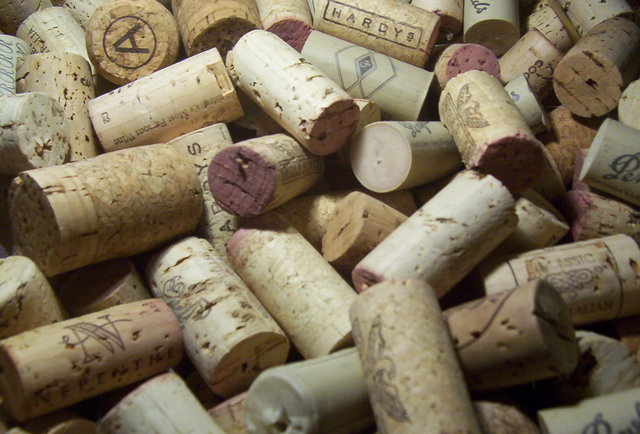Talking of wine
“Wine is one of the most civilised things in the world,” said Ernest Hemingway, and what could be more civilsed than sipping wine on a superyacht? It’s only natural for owners to expect to enjoy wine in the same way that they would at a hotel, but the truth is, not all wines have their sea legs.…
“Let’s make it very clear from the beginning, yachts are not the perfect place to keep wine,” says Tom Bradshaw, managing director at Abercrombie Fine Wines. “But clients obviously want to enjoy wine while on board their yachts or on a charter, so you have to adapt.”
Considering that last year a bottle of wine sold for £122,380 at auction and some of the most sought after bottles of wine are worth more than 280 barrels of crude oil at today’s price, very few superyachts actually have adequate storage solutions for wine on board.
“It would be difficult to design an environment less suitable for the long term storage of wine than a moving vessel,” says Vins Sans Frontieres’ (VSF) Rod Smith, who explains that the storage of wine involves movement on a molecular level. “Put simply, the molecules move around and bump into one another. Some stick together, eventually becoming heavier than the liquid and falling out as sediment, and others break apart, which is part of the development of flavour in a maturing wine.” Extremes of heat, light and vibration will accelerate maturing process, and while this does not necessarily make the wine ‘bad’, it can affect the flavour.
Some wines are better suited to a life at sea than others. Sturdy red wines are fairly resilient; the more full-flavoured and structured the better. “We have tasted a red wine that has crossed the Atlantic many times, and it has still been fine,” says Smith. This said, older vintages, like top end reds, are less ideal as older wines are more fragile as the sediment will have been thrown and more susceptible to temperature fluctuations and movements within the yacht.
As well as not having sediment, whites, rosés and Champagne are consumed at a young age and are less affected by temperature and movement. Delicate wines in these varieties will suffer the most quickly from accelerated aging though. “Wines made for early consumption do not generally appreciate any age in the first place,” says Smith. “Drier Rieslings, Sauvignon Blancs and almost all rosés are probably best provisioned on a trip-by-trip basis rather than stored on board, to ensure their freshness.”
Champagne, unsurprisingly the most popular yacht tipples, is thankfully relatively sturdy, being one of the few white wines that benefits from bottle age. The trademark thick, dark glass bottles helps preserve it as well. David Rabaud, a professional wine sommelier with World Wine Services adds that there are a lot of fantastic wines from the Champagne region with less high profile labels that should not be overlooked in favour of Cristal.
Rabaud admits that many yachts, particularly the older ones, have completely inadequate storage options for wine on board, but increasingly owners are installing proper wine cellars on board, whether retrospectively or as a part of a new build. Great wines are often an investment as well as something to be enjoyed with dinner, so storing them correctly makes sense. "There are bespoke options from certain companies like Vinotemp and Sand & Birch, who custom build fridges to store wine in the optimum conditions," says Abercrombie's Bradshaw. "Types of technology includes climate control, secure bottle racks and I have even heard of anti-roll stabilisation systems for the wine fridges." Smith says that, given available space, these can of course be installed retrospectively, but planning at the construction stage will always provide greater flexibility.
"Inadequate wine storage might potentially put off a future buyer, such is the importance of wine to many superyacht owners, so it is worth getting right in any build or refit,” concludes Smith. If you don't have any proper wine storage options, make sure that your supplier delivers wine just before any trip, so it is not hanging around too long. Top wine suppliers like Abercrombie Fine Wines and VSF keep their wines at the constant optimum temperature and humidity in their own cellars and it is best to keep the wine there as long as possible. And, god forbid, should you run out mid cruise, your supplier can arrange to send out a few more cases to the yacht.
NEW: Sign up for SuperyachtNewsweek!
Get the latest weekly news, in-depth reports, intelligence, and strategic insights, delivered directly from The Superyacht Group's editors and market analysts.
Stay at the forefront of the superyacht industry with SuperyachtNewsweek
Click here to become part of The Superyacht Group community, and join us in our mission to make this industry accessible to all, and prosperous for the long-term. We are offering access to the superyacht industry’s most comprehensive and longstanding archive of business-critical information, as well as a comprehensive, real-time superyacht fleet database, for just £10 per month, because we are One Industry with One Mission. Sign up here.
NEW: Sign up for
SuperyachtNewsweek!
Get the latest weekly news, in-depth reports, intelligence, and strategic insights, delivered directly from The Superyacht Group's editors and market analysts.
Stay at the forefront of the superyacht industry with SuperyachtNewsweek





